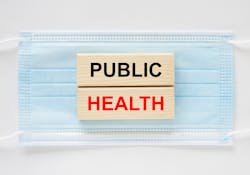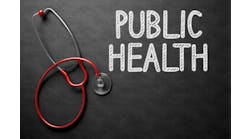The Centers for Disease Control and Prevention (CDC) has announced awards to 13 grantees who will work with the Center for Forecasting and Outbreak Analytics (CFA) to establish the nation’s first national network for outbreak response and disease modeling.
The agreement furthers CDC’s work to strengthen outbreak response and improve control of epidemics and pandemics at the state and local level, where critical response decisions are made.
Many primary awardees participating in the outbreak response and disease forecasting modeling network are leading consortia of collaborators to design, prototype, test, and scale up advances in data modeling tools and technology that can be used to support public health decision makers. This network of networks extends the geographic reach and technical diversity of performers focused on innovating, integrating, and implementing modeling and forecasting tools for use at the state and local levels.
The 13 primary recipients that make up this network are:
• Emory University
• Northeastern University
• The University of North Carolina at Chapel Hill
• Kaiser Permanente Southern California (KPSC) Department of Research and Evaluation
• Carnegie Mellon University
• University of Michigan
• University of California, San Diego
• University of Minnesota
• Clemson University
• University of Utah
• International Responder Systems
• The University of Texas at Austin
• The Johns Hopkins University
These 13 awards represent a total investment of $262 million across a 5-year period of performance, depending on the availability of funds.
At the core of this network is the belief that partnership and collaboration between academia, public health agencies, and the private sector is critical to advancing the capabilities we need to better protect the American people from public health threats. This investment is an important step in improving U.S. outbreak response by bring additional support to state and local public health decision makers.
The University of North Carolina Gillings School of Global Public Health is one of the 13 funded partners working alongside the CDC to establish the Outbreak Analytics and Disease Modeling Network (OADM).
The Gillings School will receive yearly funding of $4.5 million for five years to support the creation of the Atlantic Coast Center for Infectious Disease Dynamics and Analytics (ACCIDDA), which will support the CDC’s CFA as the OADM Coordinating Center and as a Center of Innovation.
“These centers will create a national network to provide data and modeling support to public health responders as they prepare for future infectious disease outbreaks,” said Justin Lessler, Ph.D., co-lead of ACCIDDA and professor of epidemiology at the Gillings School, in a statement. “We want to ensure that, the next time an incident like COVID-19 happens, there are known and trusted sources for modeling and data analysis that can produce relevant and valid projections.”
ACCIDDA will be led by Lessler and Kim Powers, Ph.D., associate professor of epidemiology at the Gillings School, along with Shaun Truelove, Ph.D., assistant scientist in international health and epidemiology at the Johns Hopkins Bloomberg School of Public Health. Additional collaborating institutions include the Johns Hopkins Applied Physics Laboratory, the University of Florida and the University of Pittsburgh School of Medicine. Jennifer Anderson at the Gillings School and Erica Carcelén at Johns Hopkins Bloomberg School of Public Health will serve as ACCIDDA’s project managers.
Over the next five years, ACCIDDA will function in two capacities.
The first: As a Center of Innovation for the OADM, where, as one of the CDC’s 13 partners, the team will support the creation of a pipeline for new analytical methods, tools and platforms for modeling efforts that can be used to provide information to public health decision-makers.
The second: As the Coordinating Center, which will oversee coordination of efforts and the transition of analytical methods between the 13 funded partners in the OADM.
“The goal is to provide reliable modeling and response tools for public health agencies to respond to various types of potential outbreaks, like Mpox or COVID-19,” Powers said in a statement. “One of the innovations our center plans to focus on is finding ways to take projections at the national or state level and make them relevant to smaller communities, particularly those that are rural or marginalized who need a customized public health approach.”
The center will launch on Sept. 29. Over the first two years of the project, the ACCIDDA center will establish new data resources to ensure timely information is available in a public health emergency, develop innovative new methods for predicting epidemics, deepen relationships with public health departments and help train a new generation of infectious disease epidemiologists. These efforts will include establishment of an online cohort for ongoing tracking of infectious disease outcomes and the leveraging of emerging AI technologies to improve the timeliness and local relevance of infectious disease analytics.


